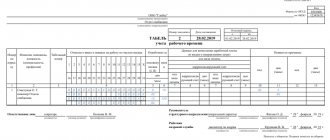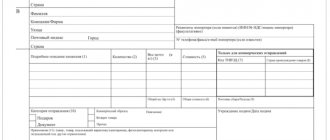What are reimbursable expenses?
Reimbursable expenses include expenses that one of the parties to the transaction makes in the interests of the other party.
Example
When renting real estate, the tenant compensates the owner of the property for the costs associated with its maintenance. These could be utility bills, insurance, etc.
Reimbursable expenses are often related to transportation services. Many sales contracts provide that the supplier himself will arrange the delivery of the goods to the buyer. If the seller does not have vehicles or their use in this case is unprofitable (small batch of goods, inconvenient logistics, etc.), he can use the services of a third-party carrier company.
As a result, all costs associated with delivery, of course, fall on the buyer. But how reimbursement of costs is subject to VAT will depend on the documentation of these transactions.
Next, using the example of transport services, we will consider various options for processing reimbursable expenses and their tax consequences.
Costs to fight coronavirus
The main ways to avoid mass infection of employees are:
- disinfection of surfaces, distribution of disinfectants for individual use;
- use of air purification devices and bactericidal lamps in work areas;
- issuance of medical masks, gloves, respirators and other personal protective equipment (PPE);
- monitoring body temperature using thermometers and thermal imagers;
- restriction of the use of public transport, which will require payment of taxi fares for employees or compensation for the use of a personal car;
- conducting tests for coronavirus.
The costs incurred in this regard should be taken into account in accounting and tax accounting. Let's look at how to do this in each case.
Reimbursement of expenses: subject to VAT or not if the supplier
Let's consider a common option when the supplier re-invoices the amount of transportation costs using a separate invoice, or highlights it as a special line in the shipping documents.
In this case, the supplier includes in the taxable base the entire amount of sales, including “re-invoiced” services. The seller can deduct the amount of tax paid to the carrier on a general basis (letter of the Ministry of Finance of the Russian Federation dated October 22, 2013 No. 03-07-09/44156).
But the buyer, according to officials, in this case does not have the right to reimburse VAT on transport services (letter of the Ministry of Finance of the Russian Federation dated March 21, 2013 No. 03-07-09/8906). Experts from the Ministry of Finance refer to the fact that the supplier himself does not provide transportation services, therefore, he has no grounds for including the corresponding amounts in the invoice.
Example
Cost of goods sold - 120 thousand rubles, including VAT (20%) - 20 thousand rubles. In addition, the supplier highlighted as a separate line in the invoice the costs of their delivery made by the transport company in the amount of 12 thousand rubles, including VAT (20%) - 2 thousand rubles. The total amount of VAT on the invoice will be 20 + 2 = 22 thousand rubles. But, according to officials, the buyer in this case can only reimburse 20 thousand rubles related directly to the product.
With this type of paperwork, the buyer clearly suffers. But this is also unprofitable for the supplier, because the buyer may not want to continue cooperation, leading to additional losses.
However, it should be noted that the courts in such situations usually side with taxpayers. An example is the Resolution of the Federal Antimonopoly Service of the Central District dated July 1, 2009 in case No. A54-3828/2008C8. The court indicated that for VAT reimbursement it is not important who exactly provided the transportation services - directly by the supplier or by a third-party organization.
But not every businessman wants to argue with tax authorities and participate in legal proceedings.
How to apply for reimbursement of expenses in order to avoid conflicts with inspectors - we will consider further.
Application procedure for VAT refund 2019
More details
Reimbursement of expenses under an agency agreement
When the seller orders the transportation of goods on behalf of the buyer, he, in essence, performs the functions of an agent. Therefore, compensation for transport services can be carried out within the framework of an agency agreement or a commission agreement.
This agreement is concluded in addition to the main purchase and sale agreement. The seller (aka agent) orders transportation services for the buyer (principal).
How to correctly indicate VAT in a contract
In this case, the invoice for transport services does not indicate the seller of the goods, but their actual supplier (i.e., the carrier company).
The seller does not charge or reimburse VAT on the transit service, and the buyer accepts the tax for reimbursement. Such recommendations are contained in the above-mentioned letter of the Ministry of Finance No. 8906.
But it should also be remembered that agency and commission agreements refer to compensated transactions (Articles 990 and 1005 of the Civil Code of the Russian Federation). Therefore, simply re-issuing a transportation invoice is not enough. It is also necessary to provide for the agent's remuneration in the contract and draw up all the relevant documents.
And if the payment for agency services is symbolic, then disputes with inspectors regarding its compliance with market prices are not excluded. Thus, this option, although preferable to the previous one, is also not ideal from the point of view of tax risks. In addition, it leads to a complication of document flow.
How to account for reimbursable expenses without unnecessary complications
The principle of freedom of contract, reflected in Art. 421 of the Civil Code of the Russian Federation is also applicable in this case. The parties are free in their actions, including when agreeing on the rules for determining prices. Therefore, they can set floating prices, which depend on the order in which the supplier receives the goods.
Example
The unit price is:
- for pickup from the Supplier's warehouse - 1000 rubles. excluding VAT;
- upon delivery to the Buyer by rail - 1100 rubles. excluding VAT;
- upon delivery to the Buyer by road - 1150 rubles. excluding VAT
In this case, both parties to the transaction do not have problems. The supplier issues an invoice that includes only details of the product (or products) without any mention of shipping costs. Therefore, the buyer can easily take the entire allocated amount of VAT as a deduction.
For the supplier, in turn, carrier services will be a selling expense. Therefore, the seller also reimburses the “transport” VAT on a general basis.
How to easily refund VAT
In connection with the calculation (and especially the refund) of VAT, disputes often arise with inspectors. There are especially many problems with tax authorities if deductions on the declaration exceed the amount of accrued tax.
Safe share of VAT deductions in 2020
In any situation, we are able to help businessmen choose the most profitable payment option and defend their rights. If, when preparing a VAT return, we determine that the tax is subject to refund, we offer the client a choice: receive a refund from the budget or transfer deductions to the next period.
If the client chooses a refund, we complete the declaration and submit it to the Federal Tax Service. Next, we provide full support for the entire return procedure. As part of the desk audit, we provide the necessary documents and give reasonable answers to requests from tax officials. If necessary, we prepare documents for the court and take an active part in the conduct of the case.
For us, refunding VAT from the budget is a standard procedure that has been successfully carried out many times. This is the advantage of 1C-WiseAdvice over full-time accountants, who rarely encounter tax refunds and perceive them as force majeure.
The high qualifications and diverse experience of the company’s employees allow us to provide reasoned answers to the inspectors’ questions. As a result, our clients receive a refund of all claimed amounts.
What are compensation payments?
According to the definition, compensation payments are a system of monetary accruals that is aimed at supporting citizens. This may be a certain circle of people who need help:
- young mothers;
- disabled people;
- victims of man-made disasters;
- workers and residents of the Far North and other categories.
Employees of enterprises receive compensation additional payments from the employer if:
- their working conditions change - moving, working at irregular hours;
- They are subject to increased demands - combining several positions, working in difficult conditions.
Summarize
- Additional costs of the supplier associated with the execution of the contract are subject to reimbursement by the buyer (customer).
- The calculation and reimbursement of VAT in this case depends on the provisions of the contract and the execution of invoices.
- If the service provider simply re-invoices third-party services, tax authorities may deny the buyer the right to deduct VAT.
- This can be avoided by concluding an agreement for the provision of agency services or a commission. However, in this case, additional documents must be completed. In addition, disputes with inspectors regarding the price of the agent’s (commission agent’s) services are possible.
- The best option is to include all third-party services in the negotiated price. In this case, a minimum number of documents are required, and both parties to the transaction do not have problems associated with the calculation of VAT.
The procedure for compensating the contractor's actual costs.
General provisions.
The Civil Code of the Russian Federation interprets the relationship between the parties during the execution of a contract as follows: “If the cost of materials and equipment provided by the contractor, as well as services provided to him by third parties that could not be foreseen at the conclusion of the contract, significantly increases, the contractor has the right to demand an increase in the established price, and if the customer refuses to fulfill this requirement, the contract is terminated” (Article 709, clause 6)
All costs of contractors, which must be compensated by the customer based on actual expenses, should be specified when agreeing on contract prices for construction products. Compensations are classified as other costs and are shown in the Work Acceptance Certificate as a total before VAT is calculated. During construction carried out at the expense of budgetary funds, the composition and amount of compensation are limited by the provisions established by the Federal and regional executive authorities. For construction projects constructed through private investment, the composition and amount of compensation are determined by agreement of the parties.
Compensation may be paid for any cost item included in the cost of contract work.
Compensation for workers' compensation expenses.
On projects whose construction is financed from budgetary funds, this type of compensation is usually not allowed, although there are sometimes exceptions to this rule.
During construction at the expense of private investors, the contract price may provide for compensation for additional costs of paying workers, if the estimated cost of the work is determined according to state standards and prices.
Compensation for operating costs of construction machines.
During construction carried out at the expense of budgetary funds, additional costs due to the use of expensive imported equipment and construction machines purchased under lease can be reimbursed.
When using imported machines that are similar in basic technical and economic parameters to domestic machines and mechanisms, compensation provides for reimbursement of increased costs for depreciation of imported equipment.
When using imported machines that have no analogues in the range of domestic construction machines, it is recommended to draw up individual estimate standards and prices for 1 machine-hour of their work and use them when determining the cost of operating machines in local estimates. If this was not done when drawing up the estimate, then these costs should be taken into account when forming the contract price and, accordingly, included in the act of work performed as compensation.
Often, contractors experience an excess of rent for construction machines in comparison with the costs of operating the machines provided for in the estimate. Additional costs can be compensated with the consent of the customer during construction financed from private investors. In this case, the amount of compensation must be justified. Rental rates should not be higher than the average level in the region; The rental period must correspond to the operating time of construction machines, determined by standards or by PPR. The amount of compensation can be determined by the formula:
C em comp = S ar * t n m - S b em * I em
Where:
With ar
— rate of payment for car rental, rub./machine-hour;
t n m
- operating time of the machine at the site according to estimated standards, hours.
S b em
— costs for operating construction machines according to estimates at the basic price level, rub.;
And um
— the current index for the operation of machines in the region.
Compensation for the cost of material resources.
The cost of material resources is the main component of the costs of construction and installation work: its share in the cost of work is 60-70% or more. Therefore, the results of the activities of contracting organizations especially depend on the correct determination of the cost of materials, products and structures spent on production.
The actual costs of basic materials are compensated by the customer during the construction of facilities financed from any sources of funds, including the state budget. This should be specified when forming contract prices for construction products.
The amount of compensation is calculated using the formula:
C m comp = Σ j ( PM j n · C j f ) - Σ j ( PM j n · C j b ) · I m
Where:
PM j n
— consumption of j-th material according to standards, natural indicators;
j (1,2,…., m)
— types of materials, products and structures used for the work;
C j f and C j b
— prices for the jth type of materials, respectively actual current and estimated basic, rub.;
Them _
— index by article materials by type of work.
When calculating the difference in the cost of resources according to the Moscow Region TER, one should be guided by the following recommendations of the Mosoblgosexpertiza, given in the technical part of the collections of conversion factors:
“... When calculating deviations (differences) in the cost of materials, their cost is taken at selling prices (excluding transport invoices, costs for intermediary services and procurement and storage costs), for which transport, procurement, storage and intermediary costs of 13%, except for expanded clay gravel - 25%, sand - 127%, crushed stone -90%.
The actual cost of materials is determined on the basis of payment documents and is also indicated without taking into account the costs of transport, intermediary services and procurement and storage costs.
Calculation of the difference in the cost of materials can be included in the Acceptance Certificates for work performed both in the current and subsequent months after the reporting month, but no later than 2 months after the reporting month.”








